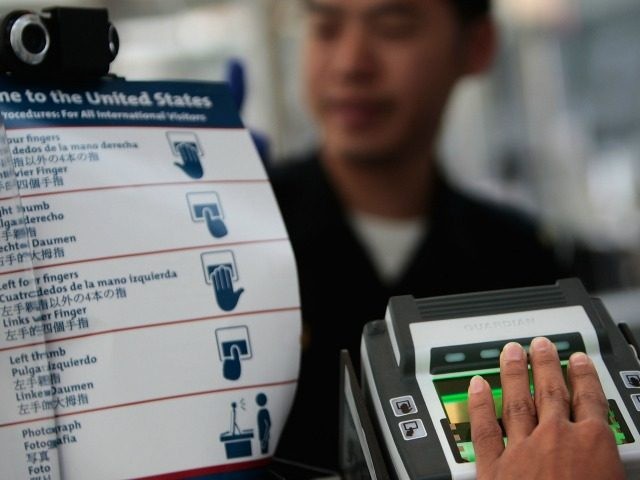The Trump administration moved quickly on Monday’s partial victory in the Supreme Court’s ruling that let stand most of Executive Order 13780’s temporary travel ban on residents of six Muslim majority countries by establishing strict rules for visa applicants that narrowly defined the Court’s “bona fide relationship” qualification.
“The new guidelines sent to U.S. embassies and consulates on Wednesday say that applicants from the six countries must prove a relationship with a parent, spouse, child, adult son or daughter, son-in-law, daughter-in-law or sibling in the U.S.,” the Associated Press reported late Wednesday:
This is according to a State Department cable obtained by the Associated Press.
Grandparents, grandchildren, aunts, uncles, nieces, nephews, cousins, brothers-laws and sisters-in-law, fiancees or other extended family members are not considered to be close relationships.
In its per curiam decision Monday in Trump v. International Refugee Assistance Project, the Court ruled that the Trump administration could temporarily ban visa applications submitted by individuals from the six Muslim majority countries that it identified as sources of terrorism (Somalia, Syria, Sudan, Iran, Yemen, and Libya) “who lack any bona fide relationship with a person or entity in the United States.”
“We grant the Government’s applications to stay the injunctions, to the extent the injunctions prevent enforcement of §2(c) with respect to foreign nationals who lack any bona fide relationship with a person or entity in the United States,” the Court said in its unanimous opinion.
The Court ruled the injunctions banning the enforcement of Executive Order 13780 in the decisions of the 4th Circuit Court of Appeals and 9th Circuit Court of Appeals “reach much further than that: They also bar enforcement of §2(c) against foreign nationals abroad who have no connection to the United States at all.”
The equities relied on by the lower courts do not balance the same way in that context. Denying entry to such a foreign national does not burden any American party by reason of that party’s relationship with the foreign national. And the courts below did not conclude that exclusion in such circumstances would impose any legally relevant hardship on the foreign national himself…
So whatever burdens may result from enforcement of §2(c) against a foreign national who lacks any connection to this country, they are, at a minimum, a good deal less concrete than the hardships identified by the courts below.
At the same time, the Government’s interest in enforcing §2(c), and the Executive’s authority to do so, are undoubtedly at their peak when there is no tie between the foreign national and the United States.
“In practical terms, this means that §2(c) may not be enforced against foreign nationals who have a credible claim of a bona fide relationship with a person or entity in the United States. All other foreign nationals are subject to the provisions of EO–2 [Executive Order 13780],” the Court ruled.
“The facts of these cases illustrate the sort of relationship that qualifies. For individuals, a close familial relationship is required,” the Court continued: (emphasis added)
A foreign national who wishes to enter the United States to live with or visit a family member, like Doe’s wife or Dr. Elshikh’s mother-in-law, clearly has such a relationship.
As for entities, the relationship must be formal, documented, and formed in the ordinary course, rather than for the purpose of evading EO–2.
The students from the designated countries who have been admitted to the University of Hawaii have such a relationship with an American entity.
So too would a worker who accepted an offer of employment from an American company or a lecturer invited to address an American audience.
Not so someone who enters into a relationship simply to avoid §2(c): For example, a nonprofit group devoted to immigration issues may not contact foreign nationals from the designated countries, add them to client lists, and then secure their entry by claiming injury from their exclusion
The Court did not specifically define “close familial relationship” in its ruling, but the Trump administration has now offered its own definition in the guidelines issued Wednesday.
A “parent, spouse, child, adult son or daughter, son-in-law, daughter-in-law or sibling in the U.S.” has a close familial relationship with a visa applicant from one of these six countries.
“Grandparents, grandchildren, aunts, uncles, nieces, nephews, cousins, brothers-laws and sisters-in-law, fiancees or other extended family members,” do not have a close familial relationship with a visa applicant from one of these six countries.
Any challenge to the Trump administration’s more narrow definition of “close familial relationship” would likely be held in abeyance until after the Supreme Court issues its final decision in Trump v. International Refugee Assistance Project, which will not come until after the Court hears arguments in October.

COMMENTS
Please let us know if you're having issues with commenting.